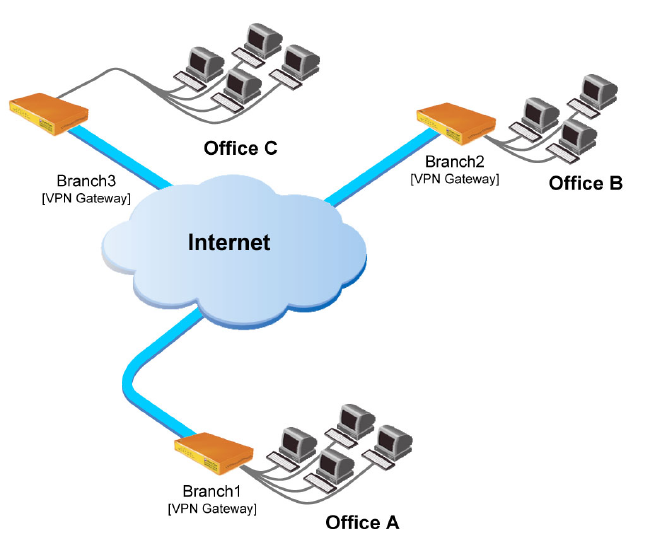Why Site to Site VPN to Connect Multiple Offices?
Top Benefits of Site to Site VPN
- Secure Connection: All traffic through a site-to-site VPN is encrypted. This means that all business data transmitted over the public internet is encrypted, making it safe from eavesdropping and modification. Simplified
- network architecture: Organizations often use internal IP address ranges for devices on the LAN. These addresses must be translated to external IP addresses to be accessible from the public Internet. With site-to-site VPN, traffic from one LAN to another is still “internal,” which means that all sites can use internal addresses to get each other’s resources.
- Access Control: Certain network resources should only be accessible internally, which means that employees in other locations should have access, but not external users. Since Site-to-Site VPN users are “internal” users, access control rules are easier to define because any traffic that does not originate from the network or enter through the VPN tunnel can be blocked from accessing these resources.
- Operational efficiency: Since users don’t need to install any client application on any of their devices, using site-to-site provides a user-friendly opportunity for businesses. Employees simply log into the work network as usual, and the gateway does the rest. Scalability One of the biggest benefits of implementing a site-to-site VPN for your business is its
- Scalability: When you open a new branch or office, you can easily add it to the WAN – you don’t have to get every device on the network up and running individually.
Difference between site-to-site and remote-access VPNs: A site-to-site VPN uses IPsec to create an encrypted tunnel to establish a VPN between two servers for traffic. Remote access VPNs typically use SSL VPNs to establish connections between the office network and various endpoints.

